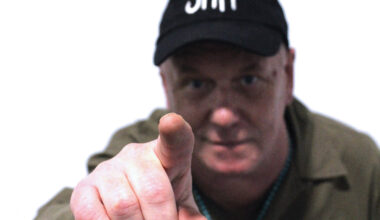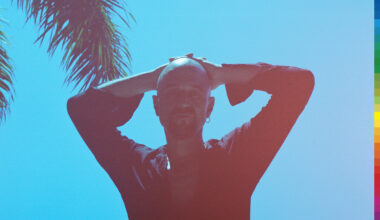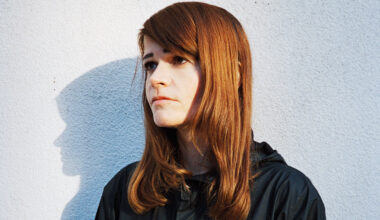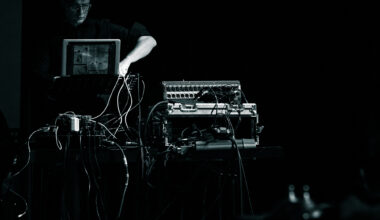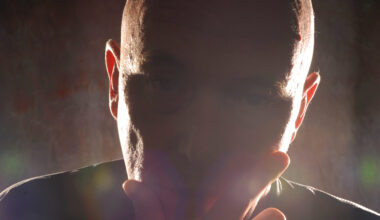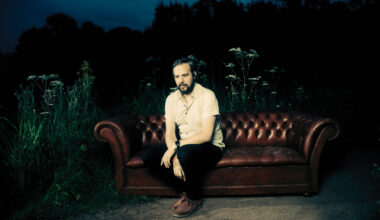Ghostpoet – Obaro Ejimiwe to his friends – reflects on the influences that have shaped his life and career
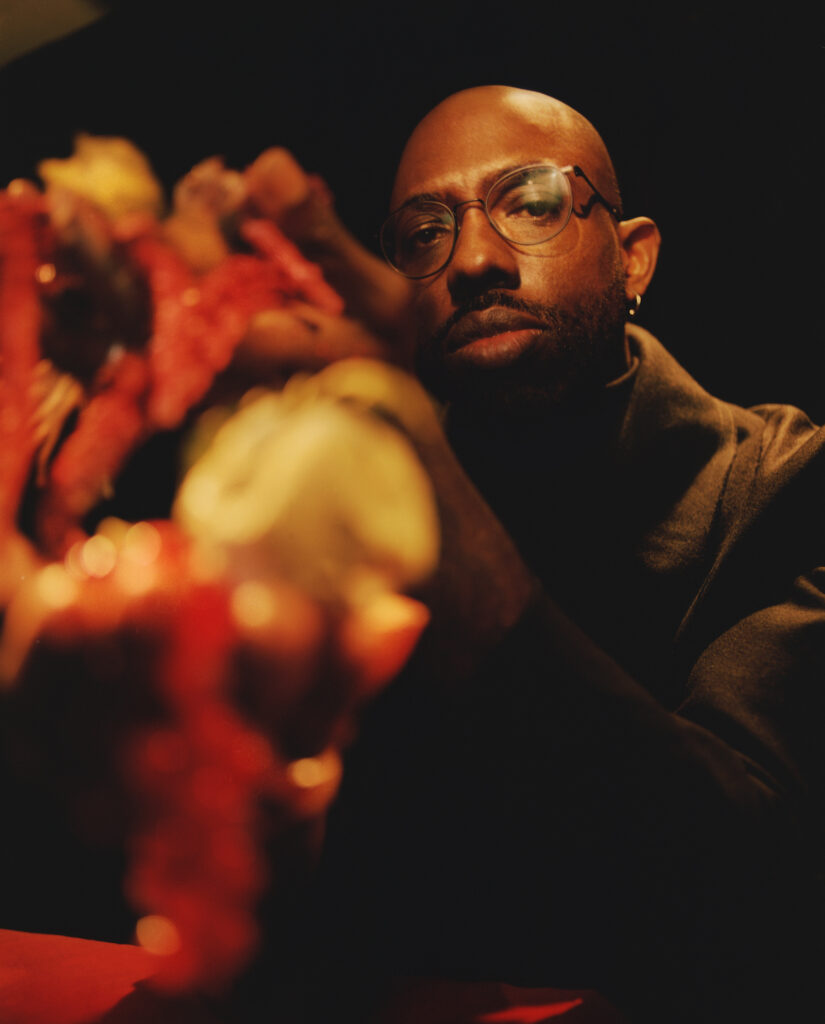
A Home By The Sea
“I was born in Tooting and moved away at 18 – I went to Coventry University – then came back to London, and eventually moved back to Tooting with my partner at the time. I got to a point where I was tired of city living. I got a chance to DJ in Margate, randomly. Something about it felt good. You come off the train and you’re instantly presented with the sea.
“We moved down there on a whim and stayed for three years. Within about a year, I got bored with music. So I quit for a bit and opened up a shop – I wanted to start a radio station, to discover and promote new music, and there’s a definite community spirit in Margate that I wanted to tap into. The premises were big, so we had a café-bar and I constructed it so you could see the radio station from within the shop. I was a barista, barman, sound engineer, toilet cleaner, everything.
“It was a learning experience, and we were just about covering the bills, but that nine-to-five existence was satisfying. I love left-field, experimental and jazz-influenced stuff played live, so I was putting on gigs like that in the shop. I could see and hear the passion the acts had – it definitely gave me the hunger to make music again, and express myself creatively. Margate was really fundamental in getting me musically back on track.”
The Ying And Yang Of Social Media
“I’m constantly going through different phases of devotion and dismay when it comes to social media. From an artist’s perspective, that direct connection with your fanbase is really positive. On the other hand, unless you’re really thick-skinned you could be mentally damaged by opinions and comments
“There’s so many examples of why it’s great – access to experts, academic research or new sciences. And in this current situation, where would we be without social media? But the pendulum’s constantly swinging. There’s still not enough research into what it’s doing to our brains.
“I remember a time before social media, when I was able to function without it and I hate the fact that I’m addicted to it. I had dreams of reading more stuff during this period of isolation. On my studio desk, I have about 10 books to read, and another whole load on the bookshelf behind me, but my brain just can’t switch off and focus.”
Eclectic Listening
“I’ve always listened to music. I listen to a lot of pure electronic stuff, but also other bits in a similar vein, where it’s marrying together acoustic instruments and electronica, or alternative guitar music and electronic music. I love Boards Of Canada, Tortoise’s earlier stuff and Isotope 217. I like ambient and techno-tinged stuff, and I love Four Tet. I’m currently going through a stage of liking Brazilian music.
“I’ve had a samba stage, listened to a lot of dub, and also avant-garde work like Philip Glass, Steve Reich and The Microphones. Yves Tumor, Robert Wyatt, Swans – I’ve been really into them. And I went through a jazz phase where I listened to Charles Mingus, Thelonius Monk and Don Cherry. It just goes on and on. Today, I’ve got Raphael Saadiq on, who I haven’t listened to in years – it’s reminding me of when I was a kid, listening to all that neo-soul.”
Muddy Waters
“I heard ‘Mannish Boy’ when I was about 16 or 17. I had friends who knew a bit about music, and I was introduced to the blues. Muddy Waters was one of the first people I came across, and musically, it instantly hit me – there was something in the melancholy of it, even at that young age. I just felt it in my soul. I think that’s why my first record was called ‘Peanut Butter Blues & Melancholy Jam’. I’ve listened to Son House, Robert Johnson and John Lee Hooker, but Muddy Waters is special – I liked the Delta/Mississippi blues stuff the most. Sonically, I just love his voice and his showmanship.
“What I find so interesting about him is not just his early blues stuff, but also the experimental direction he took with his ‘Electric Mud’ and ‘After The Rain’ records, the latter is more like psychedelic rock takes on the blues. There’s just something about the rawness of his music – he wasn’t afraid to try something different. His music just puts a smile on my face – I’ve actually got him tattooed on my arm. I’d love to make a blues record one day, but I’d still want it to be a reflection of me – it would be a bastardisation of the blues!”
Getting Better With Age
“My mum had me at 18, and my dad would have been 23 or 24, so in my eyes, they were already adults. When I hit my early 30s, I thought, ‘This is what adulthood should look like’, but I had no clue what that was. I’m 37 now, and I don’t feel 37.
“Ageing isn’t something I thought about at all as a kid. Do I think about it more now because I’m more nostalgic, or because of everything I’m bombarded with what I’m supposed to have achieved at this point of my life? I definitely feel like I’m making music that’s more mature. As you get older, you’re gathering more experiences, better understanding what you want to say and how you might put that across.
“What I love about the likes of Bob Dylan and Nick Cave is that they’re constantly trying to move forward, rather than be nostalgic. There’s definitely an argument for people getting better as they get older, but I think it’s about them embracing the ‘now’. That’s what I’m trying to do as much as possible.”
‘I Grow Tired But Dare Not Fall Asleep’ is out on Play It Again Sam
